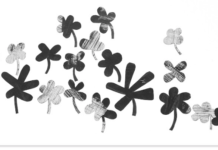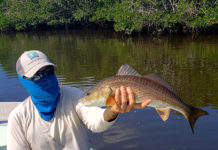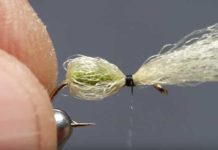WRITING ON THE FLY
By GEORGE LISET
Most fly fishers have a constant eye on the weather. Like most of life, the weather affects most of what we do. No one wants to go to the beach on a rainy day, unless the waves are up and you are a surfer. Over my fishing career, from bait caster to fly fisher, my meteorological expectations have evolved over what makes a good fishing day.
When I was primarily a baitcaster/spincaster, those warm sunny days were what I looked for on the weather reports. It wasn’t much fun sitting in a boat or standing on shore when it was raining, cold or overcast. The Bass had a tendency to get sluggish in that type of weather. It was hard to entice my buddies to go, even with a free boat ride.
As a fly fisher, I have fewer meteorological expectations. I don’t know if it is because I’ve gotten tougher in my old age, but more than likely it has something to do with some of those brain cells I’ve lost. However, I still keep my eye on the weather. I think part of it had to do with growing up down the street from famed Boston Meteorologist Don Kent.
Don lived on a hill overlooking Quincy Bay. He had a home weather studio with all his weather instruments moving in the wind like so many amusement rides at Paragon Park. On a windy day those instruments could get moving. I’m not even sure that they had radar like they do now. Don probably had a friend in Chicago that he would call up and ask him what the weather was there, and then tell us that a front was on the way and that we would have that weather in 24 hours. Back in the sixties, forecasting weather was anything but an exact science. Now with all the technology and satellites and radar, there should be no excuse for misdiagnosing the forecast, one would think.
So on my recent trip up north, I checked the weather. The day was forecasted to be partly sunny, forty plus degrees with not much wind. With the sun due to come out, I thought that might warm the water up a bit and move some fish. I was expecting a good day on the water.
When I arrived at the river, it was overcast with a temperature of just above thirty-two degrees and the wind was about ten MPH. I grabbed my nymphing rod and tied on a size eighteen tungsten Pheasant tail and dropped a size twenty beadhead Tiger Nymph with a red-hot spot and began to fish the river. My thought was that the water was so cold that I would have to put the fly on the fish’s nose since the fish wouldn’t be moving yet.
As I worked my way up the river I could feel the temperature drop and the wind pick up. Then it started snowing. I kept on keeping on as the snow came down harder. I decided to work my way back down river and change my tactics. I took off the nymphs and tied on an olive mini Wooly Bugger with a bit of flash on it. I was fishing a seam on a nice stretch and caught a small Perch. I felt sorry for the poor thing because I thought he was dumber than I was being out in this weather. I released him and headed back to the truck.
As I’m driving home I got to thinking about the weather, and meteorology in general. I think Don Kent did so much better with less technology. If I remember correctly, he might have been one of the few to call the Blizzard of ‘78. Then it occurred to me that fly fishing is so much about the weather. Whether the weather is co-operating, whether the meteorologist is right, or whether you catch any fish.
George Liset of Dover is an award-winning outdoor writer and avid fly fisherman who shares insights of his time on the water exploring New Hampshire streams and rivers as well of those around New England. George is a graduate of Wheaton College, Illinois, and the University of New Hampshire. His column Writing on the Fly has been honored by the New England Press Association and the New Hampshire Press Association.
Credit: Source link































